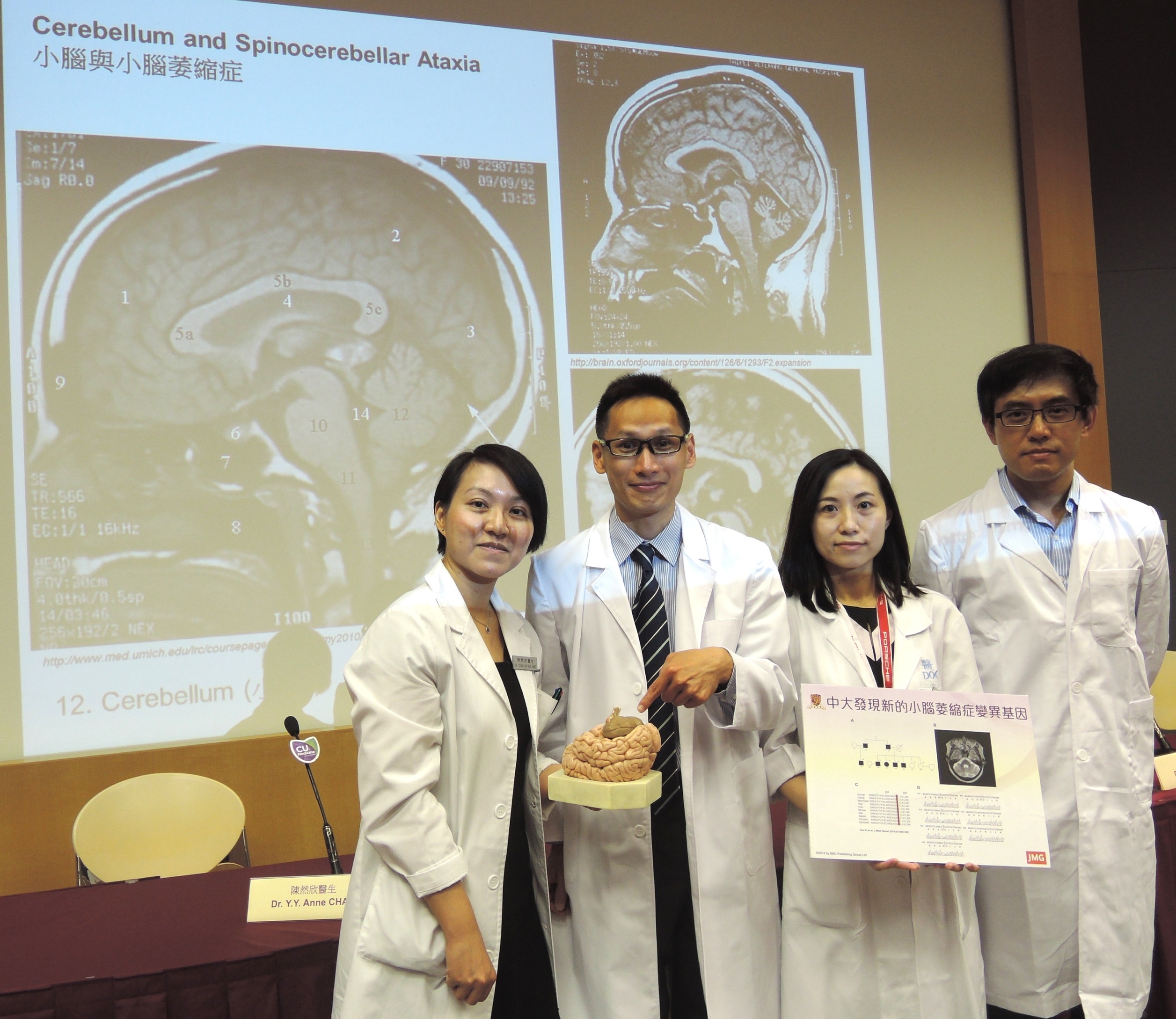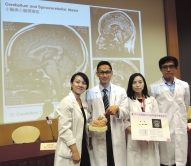CUHK
News Centre
CUHK Multidisciplinary Research Team Hunts Down Gene Mutation that Causes a Novel Form of Spinocerebellar Ataxia
After three years of persistence and hard work, a multi-disciplinary research team led by Prof. H.Y. Edwin Chan of the School of Life Sciences at The Chinese University of Hong Kong (CUHK) has identified a novel genetic mutation that leads to spinocerebellar ataxia (SCA). The work has been published in the September issue of Journal of Medical Genetics, a leading international peer-reviewed journal in human genetics. This is the first time that researchers from Hong Kong have identified a novel gene mutation that leads to SCA. The Human Genome Organization Gene Nomenclature Committee, an influential international organization formed by scientists who study human genetics, recently approved the use of ‘SCA40’ to describe this new type of SCA. This important finding has put Hong Kong on the world map of SCA research, and also shed new light on finding therapeutic directions.
SCAs refer to a group of genetic diseases that cause progressive deterioration of the nervous system, particularly the cerebellum (referred to as ‘small brain’), and are, at present, considered to be incurable. Sufferers gradually lose the fine motor functions of their bodies and have difficulty maintaining balance or coordinating daily movements. September 25, 2014 is the ‘International Ataxia Awareness Day’, a worldwide campaign first organized 15 years ago with the aim of raising awareness of the illness around the globe. The popular Japanese drama A Litre of Tears, which describes the real-life struggles of a 15-year-old girl suffering from SCAs, has helped to raise awareness of this devastating disease in Hong Kong. The Hong Kong Spinocerebellar Ataxia Association was established in 2007 to provide support to SCAs patients and their families.
In 2011, Professor Chan and his team, consisting of biochemists, bioinformaticians, cell biologists, chemical pathologist, medical geneticists, neurologists and radiologist, embarked on a cross-disciplinary study with the aim of unveiling the underlying cause of a familial form of SCA identified in the local population. By means of next generation sequencing, the team first tracked down candidate disease-causing polymorphisms in the patients’ genomes. With a concerted experimental and bioinformatic effort, the researchers finally confined the SCA mutation to the coiled-coil domain containing 88C (CCDC88C) gene. This newly discovered form of SCA has been recognized as ‘SCA40’.
Professor Chan said, ‘The new findings have opened up opportunities for clinical geneticists to provide genetic testing and counselling services to patients. In future, our team will work on therapeutics that target SCA40.’ In 2013, Professor Chan’s multi-disciplinary team also received funding from the Research Grants Council’s Collaborative Research Fund to develop a novel type of inhibitors against other SCA conditions.
Professor Chan is Associate Professor and Director of the Master of Science Degree Programme in Biochemical and Biomedical Sciences at the School of Life Sciences at CUHK. He received undergraduate training in biochemistry from CUHK, doctoral training at The University of Cambridge (UK), and postdoctoral training at The University of Pennsylvania (USA). Since 1999, Professor Chan has been investigating the pathogenic pathways of SCAs. His contribution to this field has been recognized by academia through the various research prizes he has received, including the 2010 CUHK Young Researcher Award, and the 2011 Genetics Society of China 13th Ju-Chi Li Animal Genetics Prize. In 2014, he received a Churchill College Visiting By-Fellowship to initiate a new research project on SCAs at The University of Cambridge, UK. Professor Chan is a consultant to the Hong Kong Spinocerebellar Ataxia Association, and chairperson of the Association’s Scientific and Medical Advisory Committee. He serves as editorial board member of several academic journals and reviewer for international funding agencies including Wellcome Trust (UK) and Telethon Foundation (Italy).



